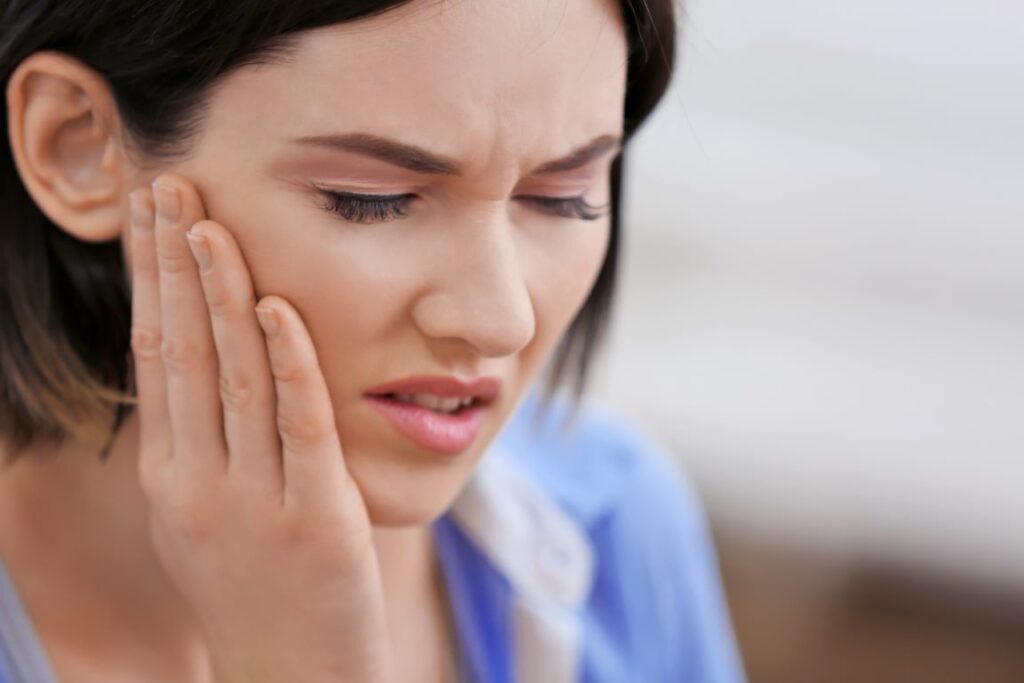Why More Women Experience TMD Pain Than Men
August 22, 2024

As a woman, you have a lot on your plate. Maybe you work outside the home, raise a family, and even have an active social calendar. The last thing you need is additional pain or discomfort from temporomandibular joint dysfunction, or TMD. But unfortunately, women between the ages of 18 and 44 are the most common demographic to suffer from this often-debilitating condition. Here’s why TMD is so prevalent amongst young women, and what you can do to finally get some relief.
What is TMD?
Temporomandibular joint dysfunction is a collection of disorders of the jaw that occur when the temporomandibular joint of the jaw comes loose from the socket. This causes it to ‘pop’ in and out as you open and close your mouth. Not only can it cause a clicking or popping sound as it does, but it can also cause a great deal of pain. In fact, in some cases it can become so painful that patients have difficulty opening and closing their mouths to eat, speak, or chew.
TMD symptoms may include:
- Migraines / headaches
- Tinnitus (ringing of the ears)
- Neck, shoulder, and back pain
- Stiffness or inability to open and close your mouth
- Teeth grinding
- Jaw clenching
What Causes TMD?
TMD can have many causes. Sometimes it can be caused by a jaw injury, but in many cases, it is genetic, so if someone in your family had it, you may be more likely to develop it, too. It can also be caused or worsened by environmental factors such as teeth grinding (bruxism) or jaw clenching, both of which are stress-related behaviors which you may do without even realizing it.
Why Does TMD Affect More Women Than Men?
While there is no definitive answer as to why women are more frequently affected by TMD than men, there are several factors that could be responsible. For starters, many researchers believe that hormones could play a role in TMD, especially considering the higher rates amongst women of childbearing age.
Another factor could be stress, as adult women often lead high-stress lives and may be more likely to manifest that stress physically.
If you are a woman (or a man!) suffering from TMD, speak to your dentist today about your treatment options. Often, solutions such as bite guards (for bruxism), orthodontics, physical therapy, and massage can be beneficial in relieving pain. Your dentist can help you develop a plan of action to correct your TMD and finally get the relief you need.
About Dr. Noble
Dr. Joseph H. Noble has been practicing dentistry for more than 20 years and enjoys being able to watch his patients and their families grow up with healthy smiles! An avid outdoorsman and proud dad, he is also a current member of the American Dental Association, Texas Dental Association, and San Antonio District Dental Society.
To schedule an appointment for TMD treatment, please visit our website or call us today at 210-342-1001.
No Comments
No comments yet.
RSS feed for comments on this post.
Sorry, the comment form is closed at this time.

